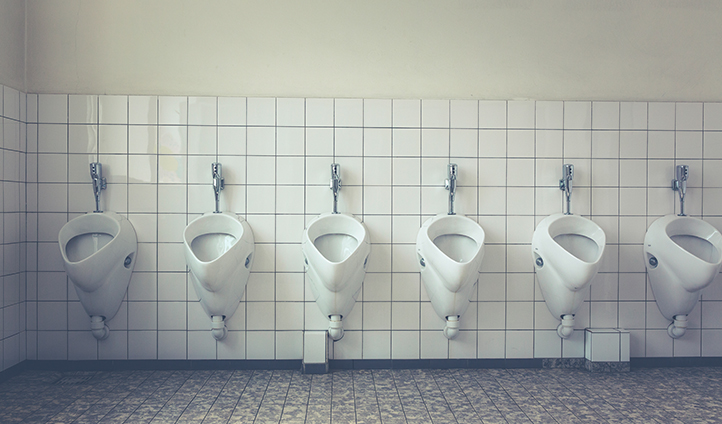Gloucester County School Board v GG Transgender Case Returned to Lower Court

The U.S. Supreme Court will not decide the potential blockbuster transgender bathroom case anytime soon. The justices recently remanded Gloucester County School Board v GG back to the Fourth Circuit Court of Appeals.
Facts of Gloucester County School Board v GG
In 2014, Gloucester High School agreed to allow G.G., a Virginia teen who was born as a girl but identifies as a boy, to use the boys’ bathroom. However, in response to complaints from students and parents, the Gloucester County School Board adopted a policy mandating that students must use only the restrooms and locker rooms that correspond with the gender that they were assigned at birth.
G.G. filed suit in federal court, alleging the school board violated Title IX of the Education Amendments of 1972. The statute prohibits discrimination “on the basis of sex.” Meanwhile, its implementing regulation, 34 C.F.R. § 106.33, allows “separate toilet, locker rooms, and shower facilities on the basis of sex,” if the facilities are “comparable” for students of both sexes.
In an unpublished letter, the Department of Education’s Office of Civil Rights advised that Title IX’s prohibition of “sex” discrimination “include[s] gender identity.” The Department of Education further advised that a funding recipient providing sex-separated facilities under the regulation “must generally treat transgender students consistent with their gender identity.”
Fourth Circuit Sides with Transgender Student
The Fourth Circuit ruled in favor of G.G., relying in large part on the Department of Education’s letter. The appeals court held that under the doctrine established in Auer v. Robbins the letter must be given “controlling” deference. On remand, the district court entered a preliminary injunction requiring the school board to allow G.G. to use the boys’ restrooms at school.
The school appealed, and the Supreme Court granted certiorari. The justices specifically agreed to consider the following questions:
Whether courts should extend deference to an unpublished agency letter that, among other things, does not carry the force of law and was adopted in the context of the very dispute in which deference is sought; and whether, with or without deference to the agency, the Department of Education’s specific interpretation of Title IX and 34 C.F.R. § 106.33, which provides that a funding recipient providing sex-separated facilities must “generally treat transgender students consistent with their gender identity,” should be given effect.
Supreme Court’s Remand Order
The justices were scheduled to hear oral arguments in the transgender bathroom case at the end of the month. However, on February 22, 2017, the Department of Education and the Department of Justice jointly issued a “Dear Colleague” letter withdrawing the January 7, 2015 opinion letter. The guidance did not take any position on the proper interpretation of Title X and 34 C.F.R. § 106.33.
Although Trump Administration’s new guidance mooted the first question, both parties urged the Court to still consider the second issue: whether the school’s bathroom policy violates Title IX’s ban on sex discrimination. Nonetheless, the justices ultimately decided to send the case back to the Fourth Circuit for further proceedings. The Court’s order stated:
The judgment is vacated, and the case is remanded to the United States Court of Appeals for the 4th Circuit for further consideration in light of the guidance document issued by the Department of Education and Department of Justice on February 22, 2017, on March 6, 2017.
The case will likely make its way back to the Supreme Court. However, the case will not be decided this term.
Previous Articles
SCOTUS Rules State Can’t Immunize Parties from Federal Civil Liability
by DONALD SCARINCI on January 29, 2026
In John Doe v. Dynamic Physical Therapy, LLC, 607 U.S. ____ (2025) the U.S. Supreme Court held that...
Supreme Court to Address Racial Discrimination in Jury Selection
by DONALD SCARINCI onWhile the U.S. Supreme Court has concluded oral arguments for the year, it continues to add cases t...
Supreme Court Halts Deployment of National Guard to Chicago
by DONALD SCARINCI on
In Trump v. Illinois, 607 U.S. ____ (2025), the U.S. Supreme Court refused to stay a district court...
The Amendments
-
Amendment1
- Establishment ClauseFree Exercise Clause
- Freedom of Speech
- Freedoms of Press
- Freedom of Assembly, and Petitition
-
Amendment2
- The Right to Bear Arms
-
Amendment4
- Unreasonable Searches and Seizures
-
Amendment5
- Due Process
- Eminent Domain
- Rights of Criminal Defendants
Preamble to the Bill of Rights
Congress of the United States begun and held at the City of New-York, on Wednesday the fourth of March, one thousand seven hundred and eighty nine.
THE Conventions of a number of the States, having at the time of their adopting the Constitution, expressed a desire, in order to prevent misconstruction or abuse of its powers, that further declaratory and restrictive clauses should be added: And as extending the ground of public confidence in the Government, will best ensure the beneficent ends of its institution.





